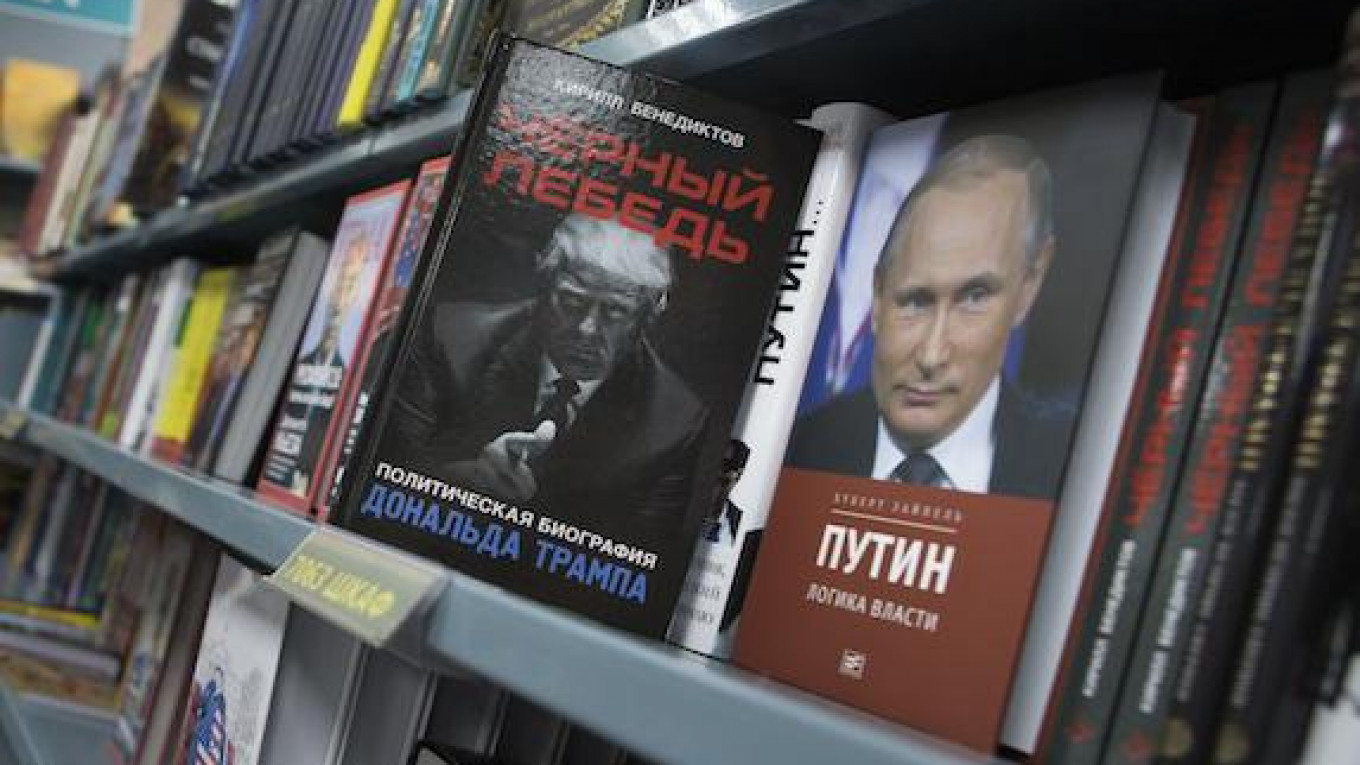No wonder many in the West see Putin as winning. The European Union is
in crisis, with Britain’s Brexit potentially being followed by other
“exits.” Elections have seen the rise of Moscow-friendly presidents:
Bulgaria’s Rumen Radev, Moldova’s Igor Dodon, and Donald Trump in the
U.S.
However much there are those who want to see Moscow’s hand behind all
this, it actually played a minimal role, if any, in most of these
developments. Moreover, while the new situation offers some new
opportunities, it is harder to be sure Russia is in much of a shape to
take advantage of them.
The hacked emails and other examples of Russian mischief in the American
elections were intended to weaken an expected Clinton presidency, not
elevate Trump. If anyone gave Trump the election, it was the FBI, not
the FSB: its eleventh-hour statement about its investigations killed
Hillary Clinton’s momentum at a crucial moment.
Likewise, for all that Russia’s propaganda stations and troll farms
assiduously backed Brexit, hoping it would start unravelling the
European Union, there is no evidence that Kremlin machinations played
any part in the referendum’s outcome.
In France, Marine Le Pen’s Front Nationale notoriously received a €9
million ($9.7 million) loan from a Russian bank. Czech president Miloš
Zeman’s campaign was in part bankrolled by the local head of Russian
company Lukoil. But that does not necessarily mean their support has
been bought or generated by Moscow.
The West is bleeding, but its wounds are self-inflicted. There is a
generalized crisis of legitimacy, as complacent political elites fail to
connect with communities feeling disenfranchised and discriminated
against. There is a toxic disconnect between a Brussels consensus of
ever-closer political union and the aspirations of most EU member states
and their populations. Governments across Europe are being held to
account for promises broken, corruption unfettered and reforms stalled.
Of course, Moscow will gleefully encourage these internal tensions, and
exploit them whenever it can. Russian propaganda, diplomacy and money
will lever open whatever splits they find — but the West cut those rifts
in the first place.
As a result, the West is divided, distracted and debilitated. Its
capacity to resist Russian adventurism is suffering.
If Trump begins to
look lukewarm about sanctions, for example, the shaky European consensus
on maintaining them will evaporate overnight.
How can Russia capitalize on this moment of weakness on the part of the
West?
The truth is it won’t be able to do much. What, after all, does it have
to offer? It could be a little less obstructive in the Middle East,
albeit by selling out one of its last allies. It could let Washington
revisit its deal with Iran, but at the cost of one of its major arms
customers.
It could be a little less confrontational and subversive in
Europe, but it’s unclear how far Trump would care about that. It could
share more intelligence about the Islamic State, but with ten terrorists
being detained in Moscow and St. Petersburg, this ought to be a greater
priority.
The West remains fundamentally stronger in every sense but one. It has
social, economic, military, political, and soft power advantage; but
Russia has will, a powerful central government without meaningful checks
and balances, that can focus resources on its priorities and ignore the
limitations and conventions of democratic societies.
In the short term, that looks like power and would-be strongmen from
Turkey’s Recep Erdogan to Trump are drawn to Putin’s example.
But it is a
kind of power that depends on the temporary weaknesses of others, and
is bought at terrible cost. Military adventures and domestic quietude
are draining Russia’s national reserves, and at the expense of any
meaningful economic reform.
Even ostensible friends, from Le Pen to Trump, put their own and their
countries’ interests first. If they let sanctions slide or turn a blind
eye to bloodshed in Syria, it is because they see some advantage to
themselves.
This is the best the Kremlin can hope for: a new generation of Western
leaders who don’t care enough about what it does at home, or in “faraway
countries” and to “people of whom we know nothing.” But the moment
Putin appears to be challenging their direct interests, he may find that
authoritarian populists are rather more formidable enemies than
multilateralist liberals.
Mark Galeotti is a senior researcher at the Institute of International
Relations Prague.
A Message from The Moscow Times:
Dear readers,
We are facing unprecedented challenges. Russia's Prosecutor General's Office has designated The Moscow Times as an "undesirable" organization, criminalizing our work and putting our staff at risk of prosecution. This follows our earlier unjust labeling as a "foreign agent."
These actions are direct attempts to silence independent journalism in Russia. The authorities claim our work "discredits the decisions of the Russian leadership." We see things differently: we strive to provide accurate, unbiased reporting on Russia.
We, the journalists of The Moscow Times, refuse to be silenced. But to continue our work, we need your help.
Your support, no matter how small, makes a world of difference. If you can, please support us monthly starting from just $2. It's quick to set up, and every contribution makes a significant impact.
By supporting The Moscow Times, you're defending open, independent journalism in the face of repression. Thank you for standing with us.
Remind me later.







